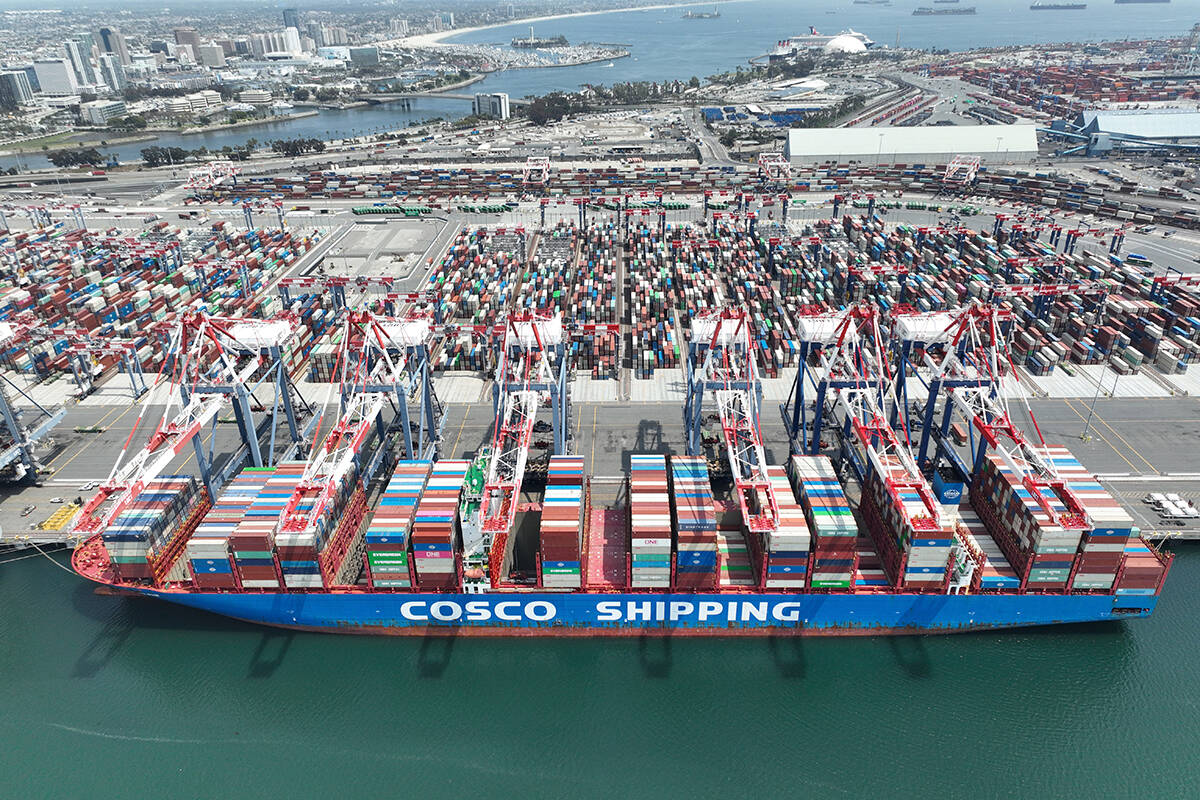Farmers who want to be sure they will be able to deliver all their wheat to the Canadian Wheat Board this marketing year should take out a Series B contract, the board advises.
Officials say they can’t guarantee that wheat held over for the Series C contract will be called for delivery.
“We are encouraging farmers with wheat they want to deliver to sign a B contract,” said Garry Pichlyk, the board’s senior manager of farmer services.
“There’s a much greater chance of 100 percent acceptance.”
Read Also

U.S. softens fees on Chinese shipping
The U.S. starts charging new fees on Chinese ships on Oct. 14. What are the ramifications for their ag exports?
If wheat prices decline later in the crop year, and if a significant tonnage is signed up for Series C, the board would be reluctant to call it for delivery for fear of reducing the value of the pool account.
“We want to try to capture as much value as possible,” he said.
“If there is insignificant tonnage, there would be no impact on the pool. If there is a significant tonnage, with serious financial implications for the pool, we would not take all of Series C.”
The deadline for signing a Series B contract is Jan. 31. The Series C deadline is May 31.
Traditionally, most wheat is signed to a Series A contract.
That was the case again this year with slightly less than 11 million tonnes committed by the Oct. 31 deadline out of total estimated deliverable supplies of 12 to 14 million tonnes, including some carryover from the 2006 crop.
Sign-up for Series B has been minimal, with a little more than 100,000 tonnes contracted. The board expects that will climb to 500,000 to one million tonnes and expects to take it all.
“We’re still expecting more to go under the B contract but we’re not seeing it yet,” Pichlyk said.
He added farmers usually wait until the last minute before signing up so they can have the most up-to-date information on market trends, price outlooks and pricing options.
















